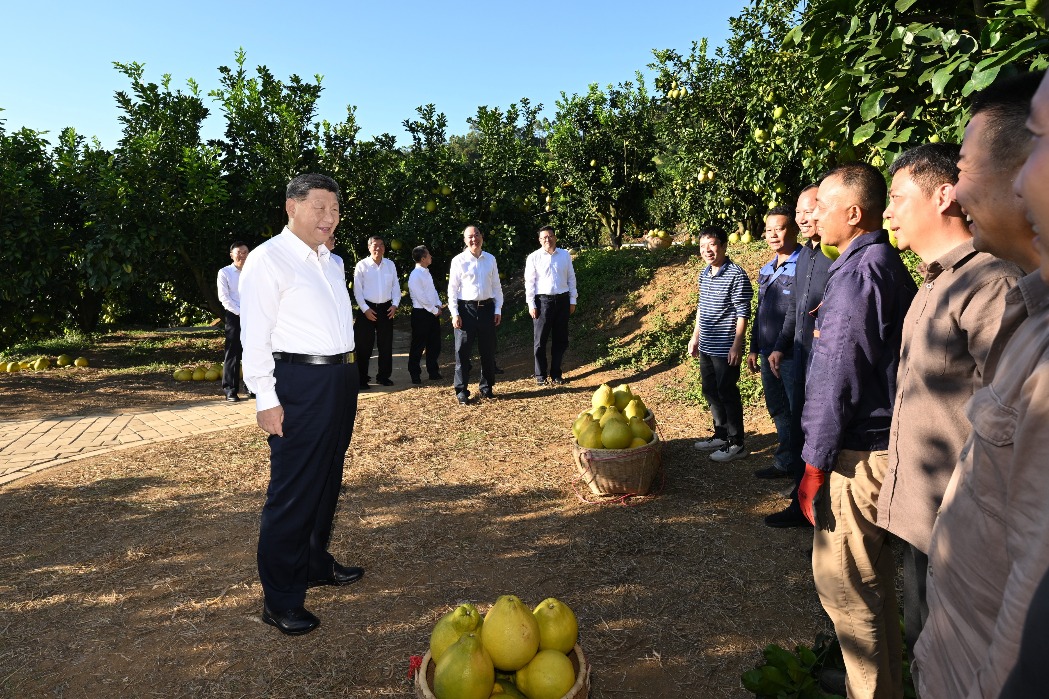STUDENTS FIND LIFE EASIER THIS WINTER BREAK
New policy reduces pressure from homework and extracurricular tutoring

Students in China have been enjoying a more relaxed winter vacation after the introduction of a policy aimed at easing the pressure of homework and extracurricular tutoring.
Xu Hanzhang, a fifth grade student in Beijing, said it has been the happiest winter holiday she has experienced, thanks to the double reduction policy, as she does not need to take any tutoring courses.
The girl's mother, who did not want to be named, said that in the past Xu took online lessons in Chinese language, math and English, as many other parents signed their children up for such courses.
"With everyone taking these courses, you felt you were missing out if your children just stayed home and did nothing," the mother said.
Winter vacations used to see students shuffling between tutoring centers to make up for missed classes and to prepare for the forthcoming semester, she said.
However, as such courses are now forbidden during public holidays and winter and summer vacations, Xu has been relaxing by reading books, doing handicrafts and taking physical exercise, the mother said.
The girl is also watching the Winter Olympics and reading comics, her parent said, adding: "She is enjoying the winter break much more than she used to. I also feel more relaxed, as other parents have stopped trying to engage in intense academic competition."
Just as adults need a break from long working hours, children who spend almost all their spare time studying will gradually lose interest in learning when they are older, the mother said.
The double reduction policy was launched in July after students became involved in endless academic competition, with their parents signing them up for as many tutoring courses as possible. The policy was introduced to let schools take the main responsibility for children's education and to enable students to enjoy all-around development.
According to the Ministry of Education, after the policy was implemented, the number of offline off-campus academic training institutions fell by some 84 percent, as did the number of online training institutions. More than 91 percent of students now take part in after-school activities on campus.
Non-academic training
Li Yuan, the mother of a primary school student in Beijing's Dongcheng district, said her daughter's school has organized free day-care activities for its students, including interest groups and sports.
The school has a wide range of interest groups that conduct free instruction sessions during winter and summer breaks. Li said her daughter prefers going to school to attend such activities, rather than staying at home for the winter vacation.
After the recent COVID-19 outbreak in Beijing, the day-care service was halted and Li arranged sports activities for her daughter, such as swimming and playing tennis, as well as painting, calligraphy and playing the guzheng, a traditional Chinese musical instrument.
"Achieving high scores does not conflict with all-around development, and children with diverse hobbies can also perform well academically," Li said.
She added that her daughter likes going to school, and lessons in class should be the main form of education. No matter how many tutoring courses a student takes, effective classroom learning is more important, according to Li.
Wang Zining, who is in the fifth grade at Beijing No 2 Experimental Primary School, said he has spent more time practicing calligraphy and reading during the holiday.
He said he learned about calligraphy and performing drama at the after-class services offered by the school. He has written Spring Festival couplets and the Chinese character fu (meaning happiness and luck) for his family.
Wang's father said he asked the boy to draw up his own schedule for the winter holiday, which also included more physical exercise and household chores.
"The school has never encouraged students to take tutoring courses, and I do not want him to spend too much time trying to earn a single extra point in exams," the father said.
Ongoing regulation
Education authorities reiterated their stance ahead of the winter break to ensure that the new policy is strictly followed.
The Ministry of Education has asked local authorities to conduct around-the-clock inspections of illegal academic tutoring.
Those who violate the regulation will be included on a blacklist, the ministry said, adding that offenders' names will be made public and they will "face widespread restrictions".
Channels should be kept open for tipoffs from local lawmakers, political advisers, the media and the public, the ministry added.
Tutoring company Xueersi, which is based in Beijing, has been ordered to suspend courses after it organized academic tutoring for high school students during the winter break, according to a recent notice from the double reduction work group office in the city's Xicheng district.
The office announced the order after receiving complaints from the public. It found that Xueersi had seriously violated government guidelines aimed at reducing excessive academic workloads. The company has been told to rectify its behavior within a set time.
All companies must follow the guideline and not conduct any form of online or offline tutoring during the stated holiday periods, the office said, adding that it will strengthen regulation and hold violators accountable.
Anxious parents
However, some parents said the absence of tutoring courses has resulted in their children's academic grades slipping, and they are worried about arranging winter holidays for them.
Wei Yingying (not her real name), the mother of a middle school student in Haidian district, Beijing, said her daughter performed poorly during her final exam, triggering anxiety about the girl's future.
Although the school has not published students' exact scores or rankings, and teachers have told Wei that the occasional below-par performance does not matter greatly, one-on-one tutors have been hired to give the student instruction at home, even though the practice is forbidden.
Wei said that although her daughter was happy at primary school, as there is no middle school entry exam, she could not simply waste her time at the latter school, as only a good performance in the high school entrance exam could ensure her a place at a reputable institution.
"I did not know how to prepare her for middle school, but having tutors to help offers me some comfort, whether such courses are effective or not," Wei said.
"My daughter seemed to be more open-minded about her poor scores than I was. She had not realized the seriousness of this, which made me more worried."
Long-term development
The mother of Chen Hongyi, a middle school student in Changsha, Hunan province, has a different attitude toward her son's performance in exams.
The boy sometimes achieves high scores, but does not perform so well at other times, according to his mother.
"I don't think parents should have overly high expectations for their children's academic performance. As long as they have tried their best, they should be satisfied with the results," the mother said.
While the parents of many of Chen's classmates have spent a great deal on academic tutoring courses, during the winter break he has mainly focused on developing his hobbies, such as soccer, basketball, painting and public speaking.
His mother said physical exercise can help Chen ease pressure, and painting is a good way for him to express his feelings.
"I am very satisfied with his performance, as he has shown he has extremely good qualities such as being confident, easygoing, efficient and good at handling pressure," she said.
Life is a marathon, not a sprint, and parents need to pay attention to their children's long-term development and short-term "ups and downs" along the way, the mother said.
"As long as my boy develops a positive world view and attitude toward life, I believe he will have a bright future," she added.
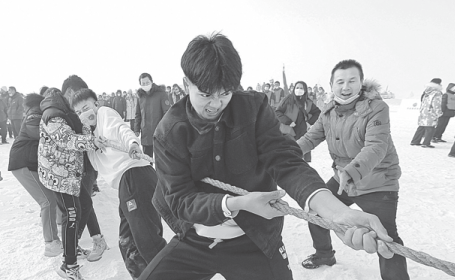

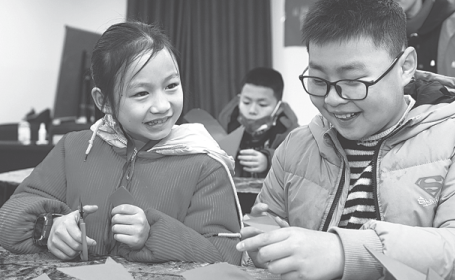
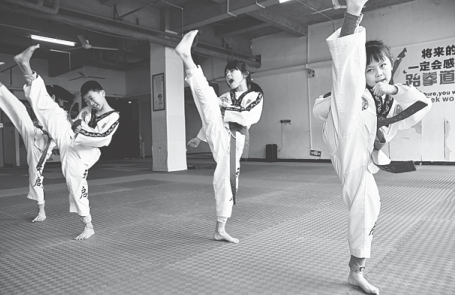
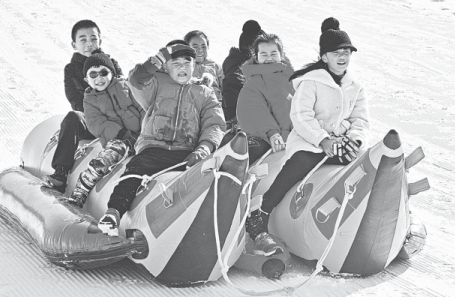
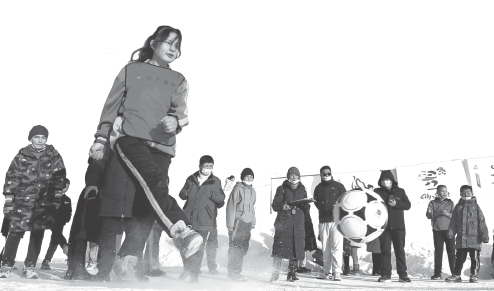
Today's Top News
- Xi urges deepening reform, opening-up during Guangdong inspection tour
- China releases white paper on low-carbon development
- What use are the humanities in the age of AI?
- Cameroon president congratulated on re-election
- Xi attends carrier's commissioning
- Drive to be powerhouse in sports championed




















